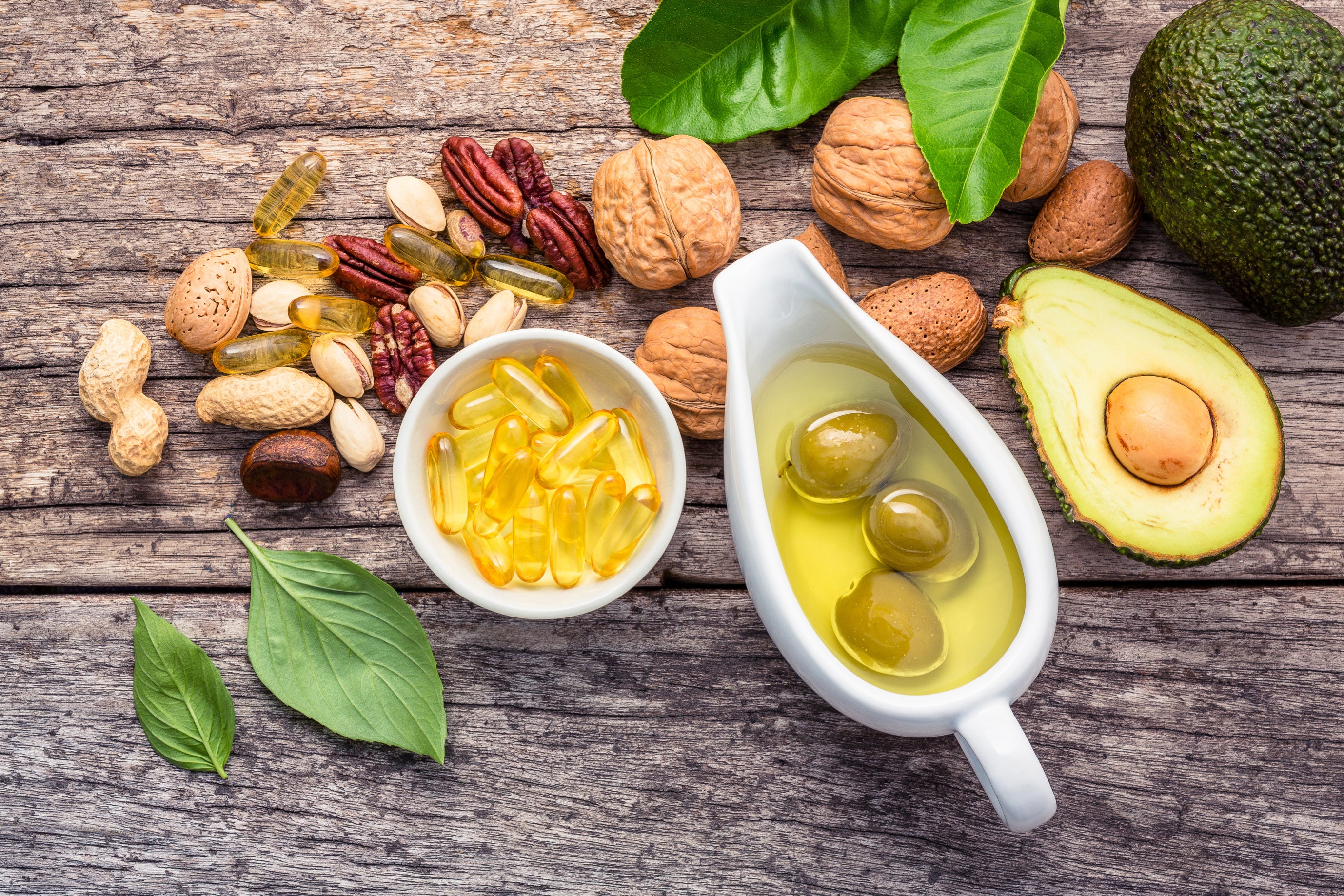If you’ve ever wondered what’s the difference between omega-3s and fish oil, you’re not alone. Omega-3 fatty acids are healthy fats used to perform essential bodily functions, and fish or fish oil supplements are a way to get them. To find out if you need to up your omega-3s, it helps to know more about them, their benefits, and what foods you might already be eating that have them.
Omega-3s: What are they, and can you get them without fish?
Omega-3s are essential fatty acids we can’t make on our own, and there are three main types:
- ALA
Also known as: Alpha-linolenic acid
How to get it: Vegetable oils (e.g., flaxseed, soybean, canola), seeds, and nuts - DHA
Also known as: Docosahexaenoic acid
How to get it: Fatty fish (e.g., salmon, trout) and shellfish (e.g., crab, mussels) - EPA
Also known as: Eicosapentaenoic acid
How to get it: Fatty fish (e.g., salmon, trout) and shellfish (e.g., crab, mussels)
Benefits of omega-3s for kids and adults
Omega-3s are essential for our body to perform at its best and may help support:
- Key cardiovascular functions and overall heart health
- Memory, attention, and overall cognitive performance
- Overall eye health
- Mood and mental health

Food or supplement: Sustainable ways to get omega-3s in your diet
Our body’s ability to convert ALA into EPA and DHA is very limited, so it’s important your diet includes good sources of both. In order to get the desired amounts of EPA and DHA through food, you’d need to eat fatty fish twice a week. If you’re a non fish-eater or vegan, an omega-3 supplement may be the best option for you.
Foods that naturally contain omega-3s include:
- ALA
- Flaxseed
- Chia seeds
- Walnuts
- Soybean oil
- Canola oil
- EPA and DHA
- Oily fish including salmon, tuna, herring, mackerel, and sardines
- Shellfish including crab, mussels, and oysters
You’ll also find omega-3s (ALA, DHA, EPA) in fortified foods including:
- Dairy yogurt
- Dairy milk
- Some juices
- Infant formula
If you’re unsure whether you’re getting enough omega-3s or could benefit from more, talk to your healthcare provider.


